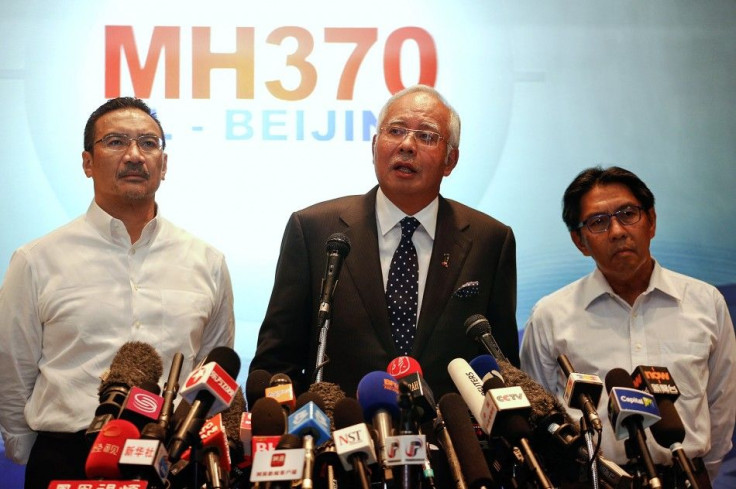Malaysia Airlines MH370: Global Leaders Scout Lessons Among the Still Missing Ruins

The Malaysia Airlines MH370, now a month still missing into oblivion somewhere, will be the focus of a global ministers meeting in Hawaii. The assembly was primarily called to bolster cooperation for humanitarian assistance efforts.
Bound for Beijing with 239 passengers onboard, Malaysia Airlines MH370 went missing on March 8. No trace of the plane has been detected to date, not even a seat cushion or a life jacket. Nothing. Zero.
"We'll go back and walk through this, what could have been done, maybe what should have been done," Pentagon chief Chuck Hagel told reporters Tuesday before landing in Honolulu. "We will get into some of this at our meeting over the next two days."
The way Malaysia handled the crisis from day one has come under fire, more so from relatives of the 153 Chinese nationals on board.
Singapore Foreign Minister K. Shanmugam however pointed out Southeast nations lacked the military hardware to deploy in such a disaster. It would be unfair to compare them to the United States or China, he said.
Despite communications mysteriously and purposefully cut off and satellite data suggesting the aircraft turned back over Malaysia, no one still has the answers as to why and how Malaysia Airlines MH370 terminated somewhere in the vast southern Indian Ocean.
Hijacking and sabotage by either the 10 crew members or the rest of the 227 have also been ruled out by authorities.
"What we need to do is keep an open mind, look at the facts, and keep building the jigsaw puzzle. Because that's all we have at the moment," Michael Kay, a former British pilot and military officer, told CNN.
If there's anything positive will all the rollercoaster search is that countries can focus to work together.
"I think on the one hand it has shown that we have a number of countries that can put aside their rivalries and differences and work together," a senior US defense official told AFP.
The global search team involves 10 aircraft, naval ships and now a British nuclear submarine.
"We'll keep going til hell freezes over," Kim Beazley, Australia's former defense minister and current ambassador to the United States, told CNN's Wolf Blitzer. "It could take months, it could take years."





















